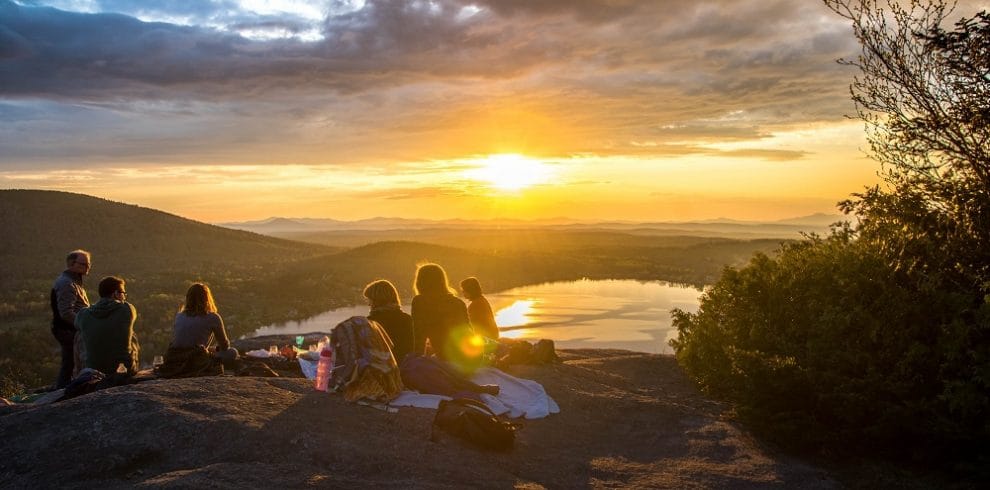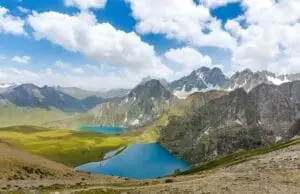Introducing children to the wonders of nature through trekking is a priceless experience. Family trek and Friendly trek is not different they are combine adventure, bonding, and education, fostering a lifelong love for the outdoors. However, trekking with kids requires careful planning and consideration to ensure safety and enjoyment. Here’s your ultimate guide to planning treks for families and kids, complete with advice, tips, and activities to create unforgettable memories.
Why Family Trek And Friendly Treks Are Special
Trekking with family offers a unique combination of fun, bonding, and adventure. It’s an opportunity to create lasting memories while teaching kids about nature and responsibility.
Choosing the Right Family Trek and Friendly Trek
Selecting the ideal trail for your family is crucial for a successful trekking experience. Here are key factors to consider:
1. Difficulty Level
Opt for trails that are easy to moderate, with gradual slopes and shorter distances. Full-day treks or 1-2 day treks are ideal for children with moderate endurance.
2. Distance and Duration
Choose treks that are not too long or time-consuming. Young trekkers can handle treks spanning 2-3 days at most.
3. Accessibility
Select treks with nearby amenities such as washrooms, water sources, and medical aid. This ensures comfort and safety for the entire family.
Preparing Your Kids for the Family Trek
Proper preparation minimizes anxiety and enhances the trekking experience for children.
1. Build Physical Fitness
Encourage regular exercise to build stamina. Practice hikes in parks or local nature reserves help kids get accustomed to walking long distances.
2. Involve Them in Planning
Include children in planning. Discuss the route, sights, and activities, and let them pack their gear. This fosters excitement and a sense of responsibility.
3. Set Expectations
Teach kids basic trekking practices, safety measures, and trail etiquette. Prepare them for group dynamics and the challenges of trekking.
Packing Essentials for Family Trek
Packing the right gear is essential for comfort and safety.
1. Backpacks
Use lightweight backpacks with good back support. Kids should carry only essentials like water, snacks, and a light jacket.
2. Clothing
Pack weather-appropriate clothing: moisture-wicking base layers, insulating mid-layers, and waterproof outer layers. Ensure kids have extra dry clothes.
3. Footwear
Invest in comfortable trekking shoes or boots that provide grip and support. Break them in before the trek to avoid blisters.
4. Snacks and Water
Carry healthy snacks like nuts, dried fruits, and granola bars. Bring enough water and consider hydration systems for convenience.
Prioritizing Safety
Safety is paramount when trekking with children.
1. First Aid Kit
Include bandages, antiseptic wipes, pain relievers, insect repellent, and any necessary medications. Learn basic first aid procedures.
2. Navigational Aids
Carry a map, compass, or GPS. Teach kids the importance of staying on the trail and following instructions.
3. Communication Devices
Bring fully charged devices, power banks, and whistles for emergencies. Establish a plan for staying connected.
Making the Trek Fun and Educational
Engage children with activities that make the trek enjoyable and educational.
1. Games and Activities
Incorporate scavenger hunts, nature bingo, or storytelling to keep kids entertained.
2. Learning Opportunities
Teach kids about local flora, fauna, and conservation. Bring a nature reference book to identify plants and animals.
Rest and Nutrition
Frequent breaks and proper meals ensure energy and enjoyment.
1. Frequent Breaks
Plan regular stops for rest, hydration, and snacks. Use breaks to admire the scenery and take photos.
2. Balanced Meals
Pack nutrient-rich meals with carbohydrates, proteins, and healthy fats. Lightweight and wholesome options like sandwiches and fruits work well.
3. Stay Hydrated
Encourage regular water intake to prevent dehydration, especially in hot weather.
Adjusting Your Pace
Adapt the Family trek to the slowest family member to ensure everyone enjoys the experience.
1. Go Slow
Allow kids to explore at their own pace. Patience is key to keeping them engaged.
2. Encourage and Support
Offer motivation and help when needed. Assist with carrying gear or navigating challenging stretches.
Respecting Nature
Teach kids to appreciate and protect the environment.
1. Leave No Trace
Educate children on minimizing their impact on nature by avoiding littering and staying on designated trails.
2. Wildlife Safety
Explain the importance of observing wildlife from a distance and avoiding feeding animals.
Post-Trek Reflection
Celebrate the experience and create lasting memories.
1. Share Stories
Discuss the highlights of the Family trek and what each family member enjoyed most.
2. Create Memories
Compile photos, drawings, and keepsakes into a scrapbook or album. This can be a fun family project and a cherished memento.
Conclusion
Family Trek is a rewarding adventure that nurtures a love for nature and strengthens bonds. With proper planning, preparation, and the right trail, treks can be safe, fun, and educational for all ages. So, gather your loved ones, pack your bags, and embark on a journey to create unforgettable memories in the great outdoors!









